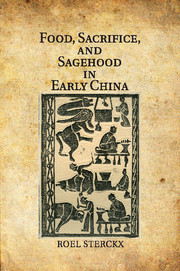4 - The Economics of Sacrifice
Published online by Cambridge University Press: 03 May 2011
Summary
It is late autumn. The fields have been cleared of crops, the harvests stored in granaries, and among the herds that were carefully nourished and pastured over the spring and summer months, the best animals have been set apart as victims for sacrificial ceremonies that mark the coming ritual calendar. The Son of Heaven, so the “Monthly Ordinances” prescribe, assembles his feudal lords, issues the calendar for the coming year, and sets out the rules and quota for the taxes to be extracted from his people. The amount of goods to be levied as tribute is calculated and determined according to the geographical distance of his vassals to the court, the quality of their lands, and their obligatory contributions to state and ancestral sacrifices. In all of this, the ruler is advised to levy no more than the required amount from his people and encouraged to neglect his private needs.
Like feeding one's subjects or catering for the ruler's kitchen, serving spirits through sacrificial ritual was both a costly and complex operation. The scenario described in the opening paragraph and variants of it across Warring States and Han texts unveil a world in which religious obligation and economic duty are deeply intertwined; a society where goods used in the service of the spirits are levied together with taxes to support the mundane organization of everyday life. It is a world where economics and religious obligation meet and do so, ideally, for the public good.
- Type
- Chapter
- Information
- Food, Sacrifice, and Sagehood in Early China , pp. 122 - 166Publisher: Cambridge University PressPrint publication year: 2011



